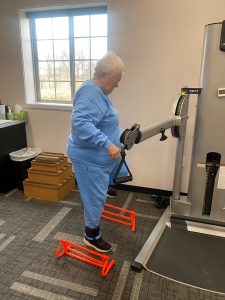The Importance of Outpatient Cardiac Rehab Physical Therapy
February 4, 2025

Heart disease remains one of the leading causes of mortality worldwide, affecting millions of people each year. For those who have experienced a heart attack, undergone heart surgery, or been diagnosed with heart conditions such as coronary artery disease or heart failure, recovery is a crucial process. Outpatient cardiac rehabilitation physical therapy plays a vital role in this journey, providing patients with a structured and supportive environment to regain strength, improve cardiovascular health, and reduce the risk of future cardiac events.
What is Outpatient Cardiac Rehab?
Outpatient cardiac rehab is a medically supervised program designed to enhance cardiovascular function and overall health following a cardiac event. Typically offered in clinical settings such as hospitals, rehabilitation centers, specialized outpatient clinics, or physical therapy clinics, these programs combine exercise training, education, and lifestyle counseling to promote heart health.
Key Benefits of Outpatient Cardiac Rehab Physical Therapy
1. Improved Cardiovascular Fitness
One of the primary objectives of cardiac rehab is to enhance cardiovascular endurance through structured exercise regimens. Patients are guided by physical therapists and healthcare professionals who monitor their progress and adjust exercise plans to ensure safe and effective rehabilitation. Activities such as walking, cycling, and resistance training help strengthen the heart and improve circulation.
2. Reduced Risk of Future Cardiac Events
Patients who participate in outpatient cardiac rehab significantly lower their risk of future heart attacks, strokes, and hospitalizations. By engaging in regular physical activity and adopting heart-healthy habits, individuals can better manage risk factors such as high blood pressure, diabetes, and high cholesterol.
3. Better Management of Symptoms
Many patients with heart disease experience symptoms such as shortness of breath, fatigue, and chest pain. Cardiac rehab programs help alleviate these symptoms through controlled physical therapy sessions and gradual endurance-building exercises. This leads to improved energy levels and an overall better quality of life.
4. Personalized and Safe Exercise Programs
Unlike generic fitness programs, outpatient cardiac rehab is tailored to the specific needs and limitations of each patient. Under the supervision of trained professionals, patients engage in exercises designed to improve heart function without putting undue stress on the body. Monitoring devices such as heart rate monitors and blood pressure checks ensure safety throughout the process.
5. Psychological and Emotional Support
Recovering from a cardiac event can be mentally and emotionally challenging. Outpatient rehab programs often include counseling, stress management techniques, and peer support groups to help patients cope with anxiety, depression, and fear of physical exertion. A supportive environment fosters confidence and motivation, which are key to long-term success.
6. Lifestyle Education and Risk Factor Management
A significant component of cardiac rehab is education on lifestyle modifications. Patients learn about the importance of a heart-healthy diet, smoking cessation, weight management, and stress reduction techniques. This knowledge empowers individuals to take control of their heart health beyond the rehab program.
Who Can Benefit from Outpatient Cardiac Rehab?
Outpatient cardiac rehab is recommended for individuals recovering from:
-
Heart attack (myocardial infarction)
-
Coronary artery bypass surgery
-
Angioplasty and stent placement
-
Heart valve surgery
-
Heart failure
-
Heart transplant
-
Stable angina (chronic chest pain due to reduced blood flow)
Conclusion
Outpatient cardiac rehabilitation physical therapy is a cornerstone of heart disease recovery. By combining supervised exercise, medical monitoring, lifestyle education, and emotional support, these programs significantly improve patients’ health outcomes and quality of life. If you or a loved one has experienced a cardiac event, enrolling in an outpatient cardiac rehab program can be a life-changing step toward long-term heart health and well-being. Always consult with your healthcare provider to determine the best rehabilitation plan for your condition.
